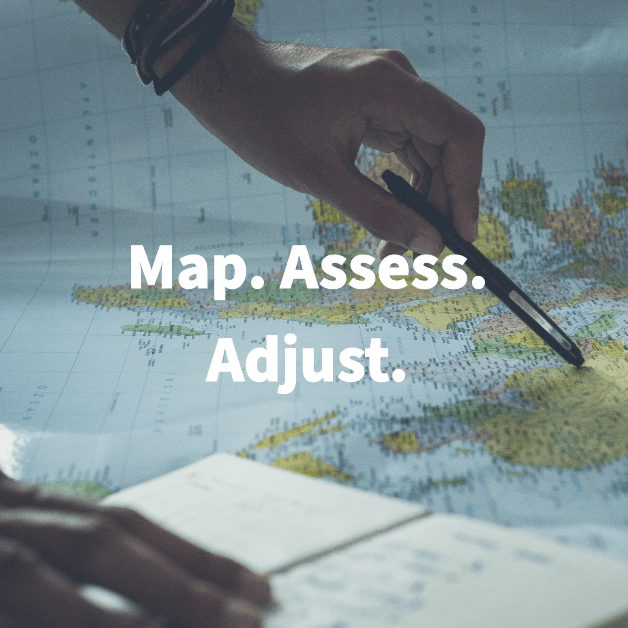Reduce External Data Dependencies to Maximize Fund Office Agility

Agility is generally considered a virtue. To that end, the ability to work independently of your vendors - meaning you don’t have to depend on your vendor for ALL situations that require access to your data - gives you greater agility. In practice, that sort of independence is the result of two factors:
- Degree of access to all your data “allowed” by your vendor
- Level of knowledge and skill to do anything with that access
As we described in last month’s post, access to your data can come in many forms. You may be able to get at your data through reports, queries and other vendor provided tools which are all forms of “allowed access.” But, it is important to remember that the fund office is the “owner” and “custodian” of all underlying data and that the vendor provided tools may or may not provide access to everything that constitutes the complete data set. Even if you feel this level of access is not necessary (and perhaps you wouldn’t know what to do with it anyway), it is an important consideration that may provide options in unanticipated situations. You can think of it as a form of insurance against something going wrong with your vendor. I am not talking about database backups here – also critical – but rather about having access to and an understanding of the complete data set that serves as the foundation for your administration systems. In some cases, if you ask your vendor for a set of data, they are likely to say “Sure, what do you need? We’ll put that in a file for you.” While that is certainly a form of access, unless or until you have set up a process where you’ve defined a request that covers all data elements, and you have a scheduled delivery of those files (e.g., once/month), then you haven’t achieved what we would call data independence. And that begs the question “How do I know what to ask for?” The answer depends, but for most fund offices this would at a minimum include:
- All the individuals in the database with their unique system identifiers, including all available demographic information (name, address, dates of birth, marriage, death, etc.)
- All the contributing employers in the database with their unique system identifiers
- The full history of all contributions transactions, with appropriate identifiers that link to a person and an employer
- The full history of all benefit payments with appropriate identifiers that link to a person
- The full history of all benefit applications with appropriate identifiers that link to a person
- The full history of all benefit credits (e.g. pension credits) for each person whether or not they were ever vested
- The relationships between members, dependents and beneficiaries (who is related to who)
- For health and welfare funds – the full history of health eligibility for all persons in the database
- All configuration and setup data (e.g. list of code names and values, tables of constants used within formulas, etc.)
If you don’t have easy access to your complete data set (which would include these elements), it may be time to work with your vendor to set it up.
Equally important to “access” are the knowledge and skills to use the data. The only way to know that you really have “everything” is if you can decode details. The knowledge component implies that even if it is not formally documented, you understand the data model that is used to support and organize your data. The skills component means that you have the ability (if necessary) to assemble the pieces (data elements) and make sense of them. As we discussed in a previous post, you can probably do a lot using Excel to extract value from your data if you have mastery of the underlying components.
Given what I have just described, I will close with a few questions to ask and answer when assessing your level of data independence from your vendor(s):
- Do you have a clear understanding of how your vendor stores and manages your data? Where is it physically, what sort of database is used and how large is the entire data set?
- If you have a need for a new report or extract, can you get it yourself or do you need to ask your vendor to do it for you? If you are dependent on your vendor, how long does it take to get that turned around?
- Does anyone on your team have a full understanding of the underlying data model? What are the base tables and do you know how they are linked together? Can you create a diagram?
- If you can receive extracts of data, do you have a push or pull environment? Push: the vendor sends you a file when they can, or according to a pre-defined schedule. Pull: you can grab up to date data as you need it.
If you can answer all these questions AND are satisfied with your answers, then you can safely assume you have sufficient data independence, which is a key factor in your ability to be agile and also contributes to moderating any risk related to your data.
10 Step Data Quality Program
- You know where your data comes from in terms of systems and sources
- You are aware of conflicts and inconsistencies between your data sources
- You have an approach for resolving any conflicts between data sources
- You capture data once, and use it in multiple places
- You have documented what data is critical for implementing your business rules, and you have approaches for filling in any missing data
- You have tools and processes for identifying and correcting flaws in your data
- Your data exists in a format that makes it easy to access using readily available tools
- You have independent access to your data
- Everyone on your team is cognizant of the value of good data and the long-term costs of sloppy data
- You leverage your data to support operations AND to support long term decisions








